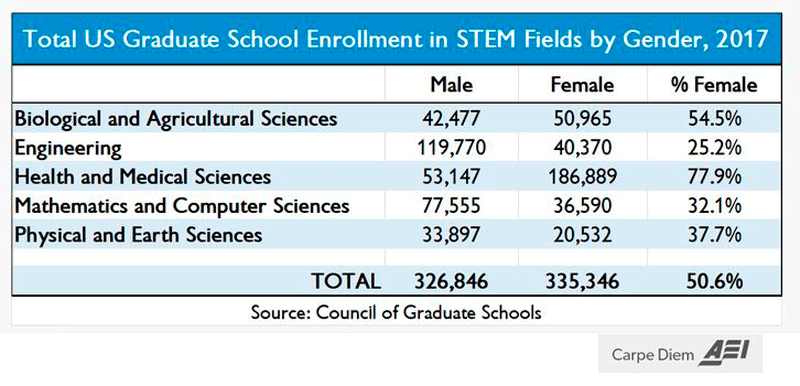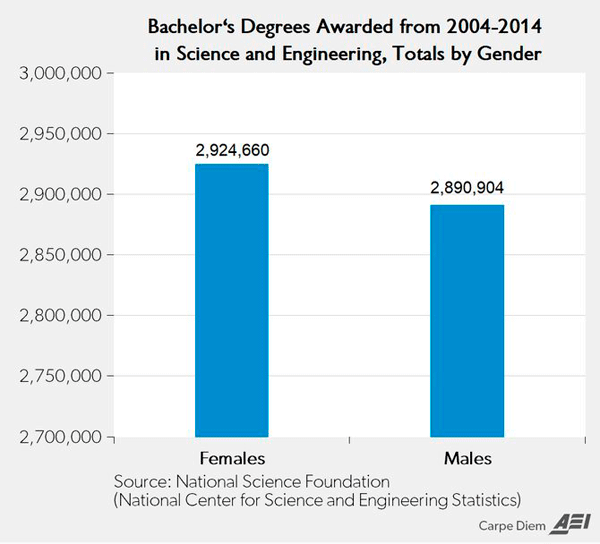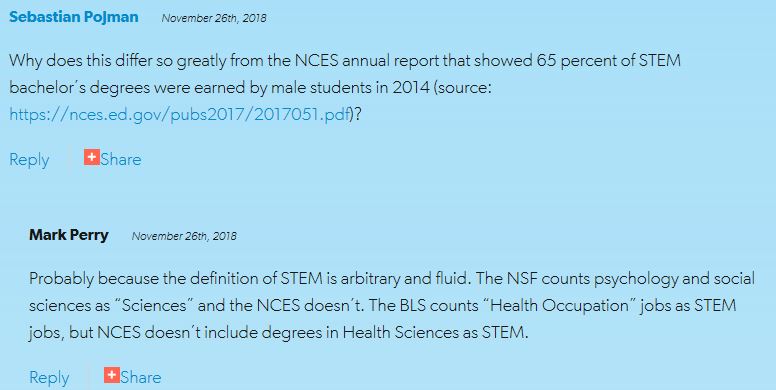
by Lil Tuttle
Mark Perry at the American Enterprise Institute’s Carpe Diem blog questions whether the “incessant cry from progressives, feminists, leftists, and gender activists about a ‘shortage of women in STEM’” is at all legitimate. He’s been crunching numbers, and the results are remarkable.
Perry pulled data on total graduate school enrollment in 2017 from the Council of Graduate Schools’ (CGS) most recent annual report.
If the CGS category “Health and Medical Sciences” is included as a STEM field (e.g., graduate degrees in Nursing, Kinesiology, Occupational Therapy, Health Sciences, Physical Therapy, Physician Assistant, Pharmaceutical Sciences, Nutrition Sciences, Environmental Health, Audiology, etc., see Appendix D “Taxonomy of Fields of Study”) there are slightly more women currently enrolled in STEM graduate programs (335,346) in the US (master’s and doctoral degrees) than men (326,846).

Perry also looked at National Science Foundation data on bachelor degrees awarded in Science and Engineering fields of study by U.S. universities from 2004 to 2014.
In total during that 11-year period, more women (2,924,660) earned bachelor’s degrees in science and engineering fields than men (2,890,904) in the academic fields the NSF defines as “Science and Engineering”: Agricultural sciences, Biological sciences, Computer science, Earth/atmospheric/ocean sciences, Engineering, Mathematics/statistics, Physical sciences, Psychology, and Social sciences.

His point:
If there is any “national crisis that will be deeply detrimental to America’s global competitiveness,” I think you could make a stronger case that it’s a crisis related to the declining share of college degrees earned by men and the persistent and increasing “college degree gap” favoring women than any “crisis” related to a female gender gap in only certain STEM fields like computer science and engineering.
We agree. If that mythical patriarchy that the Left wails about is still waging some kind of secret War on Women, women are beating them nicely.
Postscript:
One Carpe Diem reader asked an interesting question, which Perry answered:


